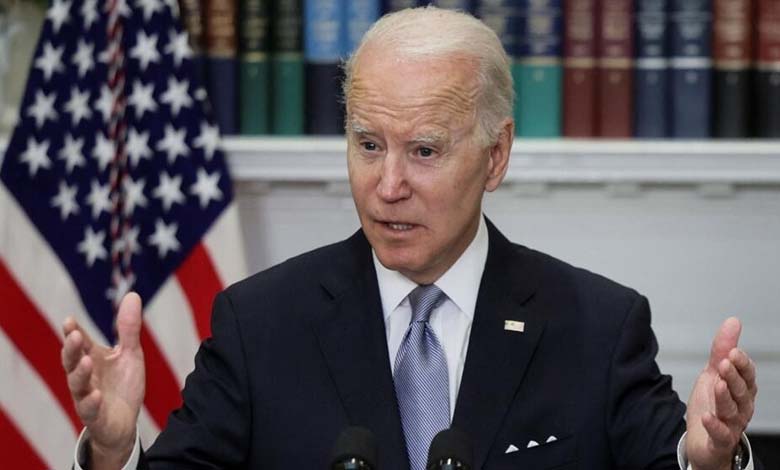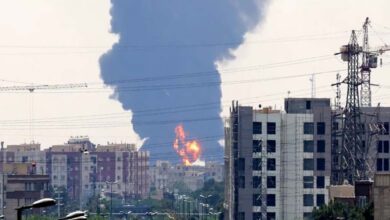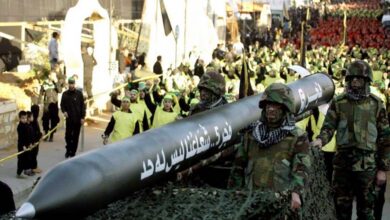Washington modifies a provision of Biden’s ceasefire proposal for Gaza
To bridge the gap between Israel and Hamas, the United States has revised part of President Joe Biden's May ceasefire proposal, working with Egypt and Qatar to persuade Hamas to accept the new proposal

According to the American site “Axios,” the United States proposed a “new formulation” of some parts of the agreement announced by President Joe Biden last May for a ceasefire between Israel and Hamas and the release of hostages in Gaza.
Axios based its report on statements from three sources familiar with the ongoing negotiations, indicating that the new formulation, which had not been previously announced, is “a modification of the Israeli proposal approved by the War Council, announced by Biden in a speech last month.”
The three sources said that American efforts, in cooperation with Qatari and Egyptian mediators, “are focused on Article Eight of the previous proposal, concerning the negotiations that are supposed to begin between Israel and Hamas during the first phase of the agreement, which includes defining precise conditions for the second phase, aimed at achieving lasting calm in Gaza.”
The sources also indicated, according to Axios, that Hamas “wants these negotiations to focus on the number and identity of Palestinian prisoners who will be released from Israeli prisons, in exchange for each soldier or hostage held in Gaza.”
Israel, for its part, wants “to be able to raise the issue of disarming Gaza, as well as other issues during this phase of negotiations,” according to Axios.
American officials “proposed a new formulation of Article Eight to reduce the gap between the two sides and are pressing Qatar and Egypt to push Hamas to accept the new proposal.”
One of the sources said, “The United States is working hard to reach a formulation that allows for an agreement,” while another explained that if Hamas agrees to the new formulation, “it would allow the deal to be completed.”
Hamas rejected the “Israeli proposal” previously announced by Biden and reiterated that any agreement must provide for a permanent ceasefire in the sector, the complete withdrawal of Israeli forces, the reconstruction of Gaza, and the unconditional return of Palestinians displaced by the war.
On Monday, Israeli Prime Minister Benjamin Netanyahu said that Israel remains committed to its ceasefire proposal and the release of hostages held in Gaza.
Netanyahu said in a speech before the Israeli Knesset, “We are committed to the Israeli proposal welcomed by President (American Joe) Biden. Our position has not changed. The second thing that does not contradict the first is that we will not end the war before eradicating Hamas.”
This followed Netanyahu‘s statements in a televised interview last Sunday, where he revealed that he was ready to accept a partial prisoner exchange to free a number of hostages while continuing the war after the truce to achieve its goals.
Netanyahu said, “I am ready for a partial deal to release some hostages, but we will resume the war after the truce to complete its objectives.”
In recent weeks, two of Netanyahu‘s far-right coalition partners, ministers Itamar Ben Gvir and Bezalel Smotrich, have threatened to leave the coalition and bring down the government if the proposal turns into an agreement.
The Biden administration has mobilized considerable international support for the proposal, succeeding in getting the UN Security Council to pass a supporting resolution.
Hamas officially responded to the proposal about two weeks after Biden‘s speech. U.S. Secretary of State Antony Blinken said on June 12 that Hamas had requested changes to the proposal and made new demands beyond its previous positions.
Blinken said at the time that while Israel had accepted the proposal, Hamas had not.
In May, Biden announced a three-phase plan to end the war in Gaza, stating that the first phase should last six weeks and include a “complete and total” ceasefire, the withdrawal of Israeli forces from populated areas of the sector, and the release of hostages, including women, the elderly, and the injured, in exchange for the release of hundreds of Palestinian prisoners.
According to the American president, Palestinians will return to their homes throughout the sector, and humanitarian aid will increase to 600 trucks per day.
-
Axios: Netanyahu Backtracks on Hostage Deal and Sparks New Crisis with Washington
-
Financial Express: Netanyahu faces his worst nightmares domestically and internationally due to the Gaza War
The first phase also includes negotiations between Israel and Hamas to reach the next phase, which is supposed to include the release of all hostages and the complete withdrawal of Israel from the sector.











